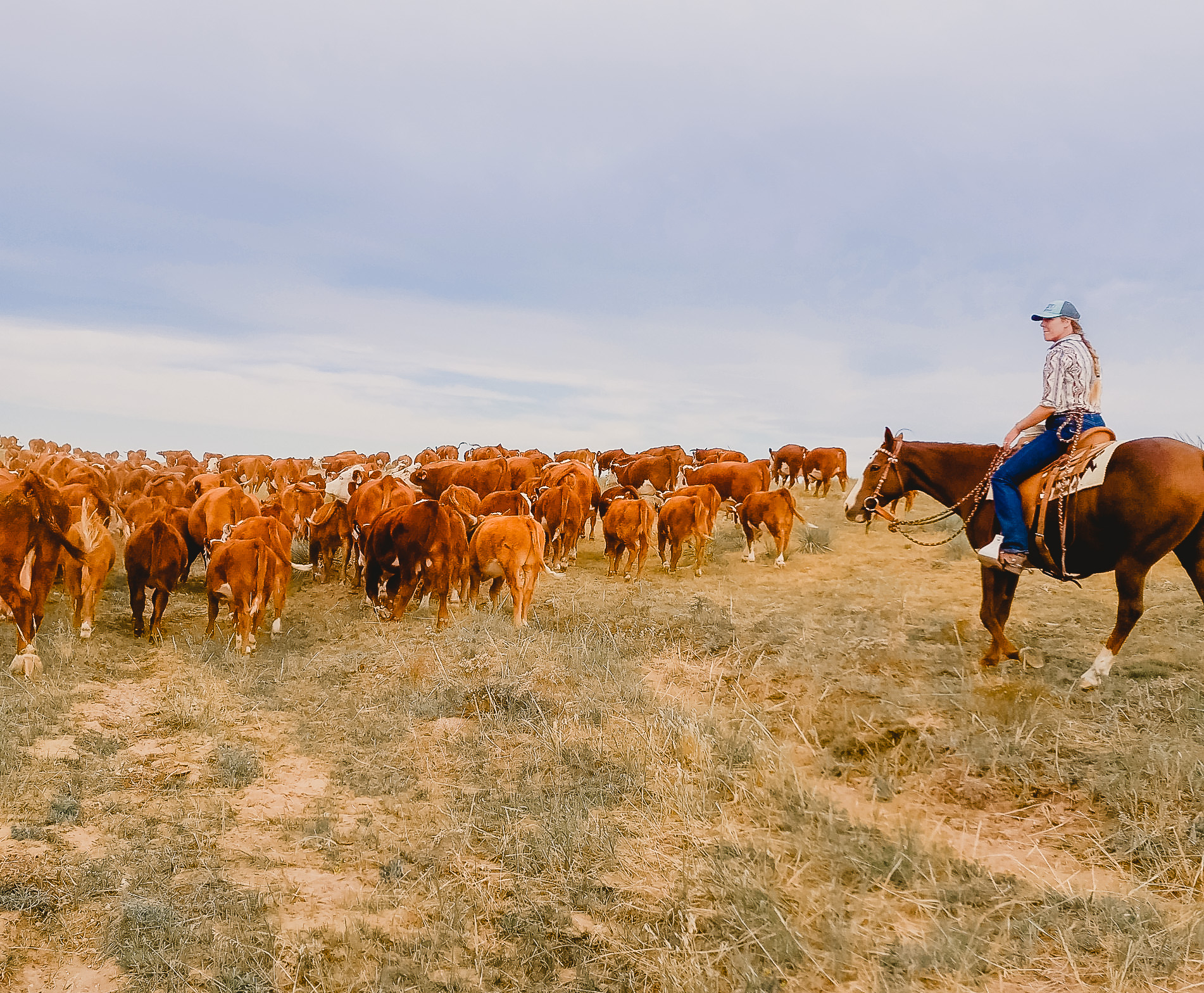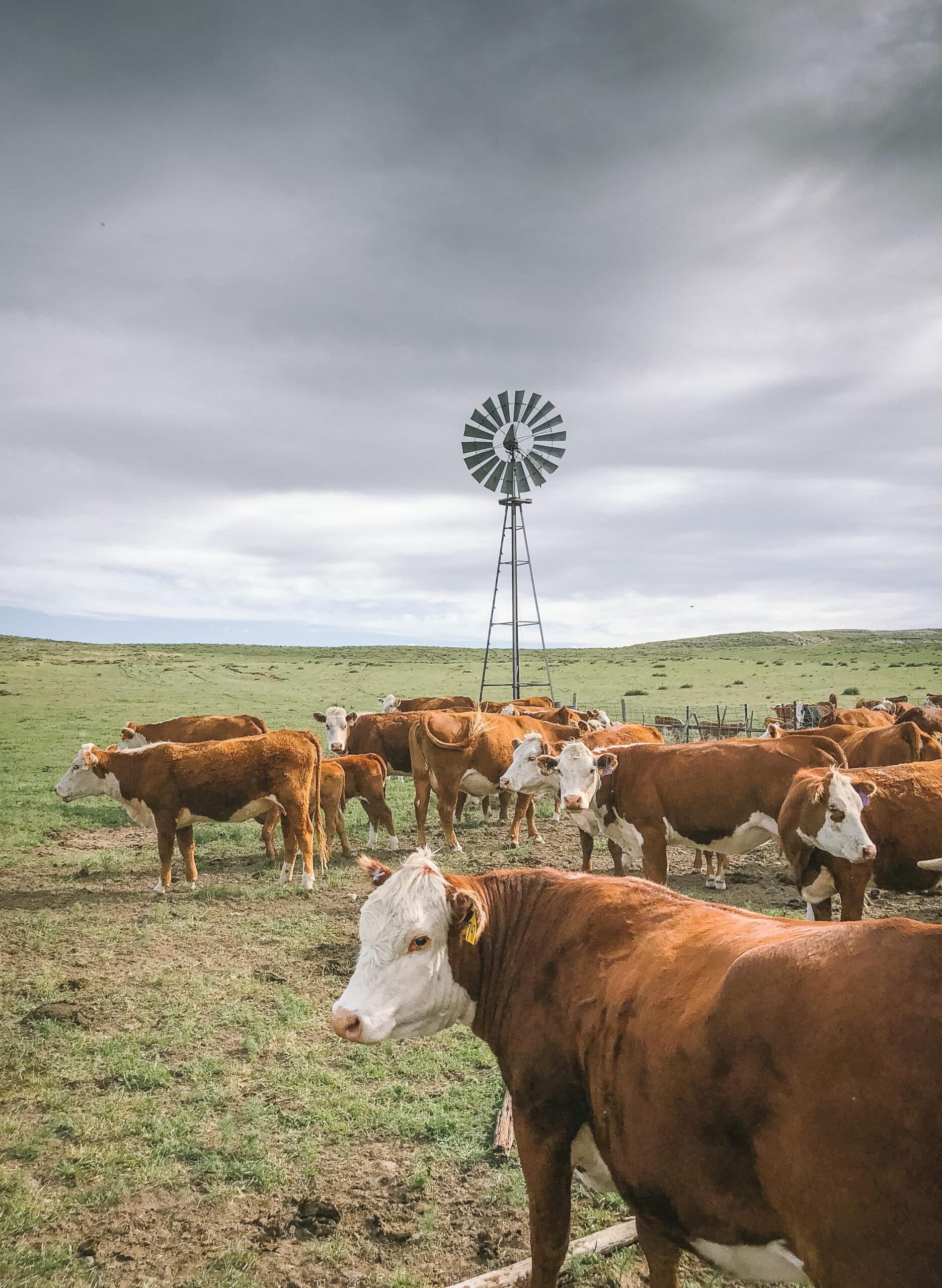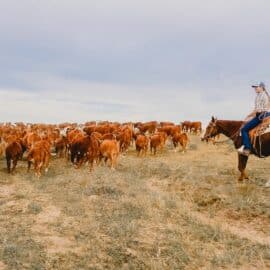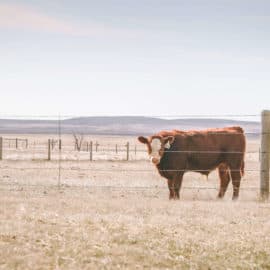
“We can continue to improve [our meatless product] now until forever, and the cow is not going to get any better at being meat.”
-Patrick Brown, Founder of Impossible Foods during an interview with Vox
We recently sat down as a family to watch You Are What You Eat: A Twin Experiment on Netflix…
It wasn’t until halfway through the first episode that I realized it was a propaganda piece for artificial meat.
(Christian had to pause the show a couple of times so I could holler at the TV.)
Needless to say, it provided us with a wonderful opportunity to teach the kids about bias, cherry-picked information, and the difference between sustainable food production and fad diets.
I’m sure no one is surprised that I’m a strong beef advocate.
I reside in a flyover state, we live rurally, we raise grass-finished beef, etc, etc, etc.
I’m basically a walking pro-beef cliche.
Yet… I have more in common with vegans than people might think.
Most vegans eat that way because they care. And I care too. And that’s a wonderful place to find common ground.
Even though I personally believe the path towards a healthier population AND a more sustainable food system points the direct opposite direction of veganism, if people make the personal choice to eat vegan, I take zero issue with that.
However. What does concern me is the recent ideological shift I’ve been noticing– even among the Coke-guzzling-potato-chip-consuming masses.
In conversations with a wide variety of people, I’m hearing more and more folks parroting the idea that a plant-based diet is inherently healthier and more moral. Veganism appears to be the latest addition to the category of “societal things that are obviously healthy for EVERYONE, even if we don’t always do them.”
It’s puzzling.
But I don’t blame the masses.
I blame the corporations who are pumping millions of dollars into advertising campaigns to convince the population that shiny new products such as cultured “meat” are an improvement on the diet humans have been eating since the beginning of time.
Hmmm….
Clever marketing shifting the way people think of food (and subsequently affecting our health for decades to come…)
Seems eerily familiar, doesn’t it?

Since the dawn of the Industrial Revolution (probably before that, actually), humans have been dividing themselves into two camps:
- Those who think the natural world holds the answers to ultimate human flourishing
- Those who believe the natural world is insufficient and MUST be improved through technology
The second one is usually in the majority, which makes sense, I suppose.
Imagine living 300 years ago in an incredibly limited world. You didn’t have artificial light, air travel, running water, or anything that makes life easier. You’re constantly butting up against your human limitations. I’m sure it was as frustrating as hell.
It’s no wonder our ancestors raced to technology and never looked back.
And if you’ve followed me for any time at all, you know that I’m NOT against modern advancements. (Penicillin and running water are GREAT.)
But.
WE MUST acknowledge how far these advancements take us from our natural state— the one in which we thrive.
That’s not to say we can’t have them in moderation, but we must understand their limitations. (Antibiotic resistance and rapidly depleting water tables, anyone?)
Anything else is arrogance.
Call me old-fashioned, or a Luddite, or whatever. But I simply can’t swallow the idea that something created in a test-tube by a finite human brain (aka meat-like substances made from vegetable oil and wheat) will ever compare to a natural system that’s been in place since the beginning of time (aka large ruminants grazing on grass, building soil, and nourishing humans).
It reminds me of the convo I had with Dr. David Montgomery on my podcast. In his book, What Your Food Ate, he shares the difference between crops fertilized with manure versus fields fertilized with industrial NPK (nitrogen, phosphorus, potassium).
At first glance on paper, the resulting crops appear to be the same. Yet nature doesn’t operate on paper.
As Dr. Montgomery explains, commercially-fertilized fields lack the microbes, beneficial bacteria, and nutrients created by complex natural soil processes that we’re just beginning to understand.
The end result is not the same. And if we DO think it’s the same, it’s because our limited human brains cannot yet grasp the full scope.
While beef is not soil, the principles rhyme.
On paper, cultured meat may be formulated to the contain the same amount of protein, carbohydrates, and major vitamins as actual beef or chicken.
YET. It fails to deliver the diverse cell types and intricate taste and texture profiles of actual meat. It’s not the same and never will be. (And our bodies aren’t going to recognize it as the same thing, either…)
So dear corporations, go for it. It’s a free country.
Use your techno-alchemy to fashion vegetable oil, wheat, and soy into “meat.”
Say it tastes better (I’m not convinced, but ok)
Say it helps the environment (it doesn’t really, but that’s a topic for another day)
Say that everyone should buy it because that’s what the celebrities are doing…
But don’t claim your products will ever be the same as meat grown through the processes nature has been honing since the beginning of time.
Because that, my friend, is indeed impossible.
Fighting the Propaganda,
-Jill
P.S. If you plan to watch the documentary with your kids, there are a couple spots you’ll want to fast forward. Diana Rodgers of Sustainable Dish also wrote a great rebuttal piece to the documentary’s conclusions here.
More of My Thoughts on Beef:
- Busting Beef Myths with Diana Rodgers (podcast episode)
- Breaking Out of the Ag Echo Chamber (podcast episode)
- Why We Only Eat Grassfed Beef (podcast episode)
- First Generation Ranchers: Our Beef Story (podcast episode)




Jill, girl! Yes!
So, full disclosure, in the decade I’ve followed your blog, I anti-aging became vegan-ish. I got cancer back in 2020 and I am one of those unlucky ones whose tumor markers react to dairy and (sometimes) red meat. I’ve been pretty strict about only indulging in delicious steak once in awhile when my body tells me it’s time.
However, what irks me is the idea that these stupid fake measures are healthier. Most of them are refined proteins exposed to extremely high temperatures. We know that exposing organic materials to high heat creats carcinogens and mutates. For years we’ve b been heating about how terrible it is to burn meat, however these fake meats are cooked at MUCH higher temperatures. It is so frustrating to me. These things are not healthy!
This reminds me of the anti-breast feeding advice doctors gave women in the 1950s that formula was better for babies than breast milk.
I’m “meat free,” but most meat-free people I know fully understand that fake meat is not healthy, and don’t kid ourselves that being meat-free it an easy or “auto-magically” healthier road. In fact, we understand it is a challenge to get nutrients and protein readily available from, say, beef.
We choose this lifestyle not because we think meat eaters are all cruel, or that meat can’t be eaten humanely, but because we simply can’t verify for ourselves whether our meat has been raised humanely. Too many animals live nightmare lives on factory farms, or on supposedly “ethical” farms.
I used to buy “animal welfare certified” meat until some of these producers were caught on video abusing animals. So the way I (and many people) see it, if we don’t raise and slaughter the meat ourselves, we aren’t going to eat it.
Hi Jill, from the other side of the world.
Ex- vegan here (7 years).
I have to say, even while I was vegan, that I didn’t consume most of the processed replacements (some of them were not bad at all taste wise)- because I didn’t want to eat all these unnatural ingredients.
It’s even worse with vegan cheese. I remember making burgers with beyond meat a few times but it was so heavy on my stomach that I just didn’t want to eat it- and the taste wasn’t bad at all.
For me, the hardest thing about eating beef (aside from that I love cows, they are amazing creatures)- is the price. Good meat is expensive- organic is even more expensive. I stick mostly to chicken and fish for that reason. And this is something that I think is worth addressing. Especially if you have a big family.